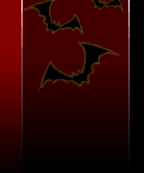|
Explanations of Subtitles in Castlevania Games
With the birth of the Dracula X subseries, the producers wanted to give the series a bit
of extra pizazz - so, they gave cool sounding, musically influenced subtitle. This has since become
a tradition in the series. However, unless you've studied music theory, these names
might mean very little to you. Furthermore, some of these names contain duel meanings. Provided below are some definitions of
the musical terms in Castlevania. Thanks to the Naxos Classicals Music Glossary
for much of this information. Please note that many of the terms were clipped for simplicity - please check
the above site if you wish to learn more. Also thanks to Wallace Esch for his feedback on this
section, and the true meaning of "Harmony of Dissonance".
Dracula X: Rondo of Blood:
This is a very interesting title - the kanji has been translated as "reincarnation" on the official strategy guide - however,
the furigana (pronunciation guide) says to pronounce it "rondo". "Rondo" can mean "circle", another reason why the title is sometimes called
"Circle of Blood". Indeed, a reincarnation is part of cycle (birth, death, rebirth, etc). However, merely translating it as
"Circle" loses the musical connotation.
The rondo form involves the use of a recurrent theme between a series of
varied episodes, often used for the rapid final movement of a classical
concerto or symphony.
Dracula X: Nocturne in the Moonlight:
The double meaning is easy to find in this one: a nocturne refers to any
animal of the night - which in this case is the vampire, obviously. However,
in musical terms, a nocturne is a "night-piece", music that evokes a nocturnal mood.
It was developed as a form of solo piano music
leading to its notable use by Chopin. The title has been used more recently
by other composers for both instrumental and vocal compositions.
Castlevania: Symphony of the Night:
A symphony may loosely be defined as an orchestral composition generally in several movements. You could translate the whole title as simply meaning a "nocturne", actually.
While still musically inclined, it loses the double meaning of the original title.
Castlevania: Dark Night Prelude:
Since the game was titled "Castlevania Legends" overseas, all of the musical
connotations are lost. Note that the kanji can be translated either as "prelude" or "overture" - "prelude"
was chosen because it more quickly identifies the storyline of the game - the
beginning of the Castlevania saga (at least on the timeline.)
Musically, a prelude is a movement or section of a work that comes before another movement or section of a work, although the word also has been used for short independent pieces that may stand alone.
Similarly, an overture is an introductory piece, often designed to initiate an opera or other dramatic work.
Castlevania: White Night Concerto/Concerto of the Midnight Sun:
There's some debate over part of this title. "White Night Concerto"
is a very literate translation: the world "hakuya" is made of two kanji, the first
meaning "white", the second meaning "night" or "evening". However, in all
of the official translations given by Konami (including the game's prologue),
they called it "Concerto of the Midnight Sun". Perhaps "hakuya" has an
additional connotation that isn't apparent through literal translation.
This is the same with Nocturne in the Moonlight (Gekka no Yasoukyoku), actually.
"Gekka" literally means "below the moon" but is translated as "moonlight".
Still, the "concerto" part remains the same.
In any case, a concerto is a piece of instrumental music that contrasts a solo instrument or a small group of solo instruments with the main body of the orchestra.
Castlevania: Harmony of Dissonance
The overseas title of White Night Concerto ditches the names of musical
movements from its title, instead opting for a different route.
The dictionary defines "harmony" and "dissonance" as antonyms, and would
suggest the title as an oxymoron. Harmony is the reaction between the sounding of two or more different
tones. Dissonance is a harmony opposite of "Consonance", or if you will,
a consonant harmony. Consonance, is a stable harmony, where as Dissonance
is an unstable harmony with a strong desire to resolve to a consenant
harmony. Without dissonance and consenance, music would be void of
movement.
So really, "Harmony of Dissonance" is not a contradiction at all.
Dissonance is indeed a harmony, and a very important one.
Still, there's something poetic about the contrast - a good analogy would be
"Light of Darkness" or something like that.
Castlevania: Aria of Sorrow
An aria is a type of song used in operas (think Aria de Mezzo Carattere from Final Fantasy 6.)
Castlevania: Minuet of Daybreak
This is the Japanese name of Aria of Sorrow. The literal
title is actually "Akatsuki no Enbukyoku", which translates to "Waltz of Daybreak". What's more interesting is how "akatsuki" is spelled.
It usually is one kanji (read "akatsuki"), but here is composed of two - the second one meaning "moon". A proper translation of this word would be "Dawning of the Moon",
but that really sounds awkward, and I don't think there's an English word to properly describe it (Nightbreak?)
Additionally, the katakana for "minuet"
appears above "enbukyoku". A minuet is a popular French dance step from the 17th century.
Head back to the Features page
| 


